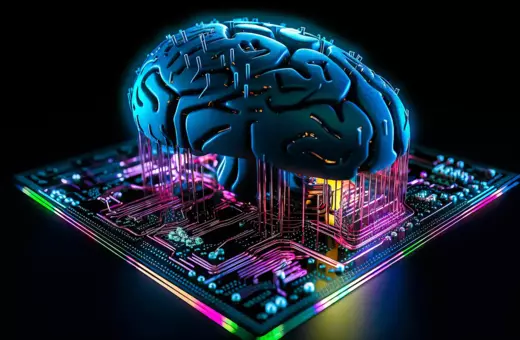Do experts drive progress forward or hold it back? Thomas Kuhn popularised the notion of of scientific revolutions as paradigm-shifting moments in which a new world emerges. But would he have shared his colleague Paul Feyerabend's scathing opinions of experts? It seems unlikely, writes John Preston.
Maverick philosopher of science Paul Feyerabend is now best known for his 1975 book Against Method, in which he tried to alter our perception of science and the lessons we should learn from it. On the basis of an historical case-study of Galileo, he argued that there is no such thing as scientific method, since great scientists are methodological opportunists who use any strategies they can in order to promote their preferred theories.
He didn’t talk much about scientific experts in that book, but in other work he published during that decade he had quite a lot to say about them, and what he said bears even more investigation nowadays, when we rely on experts for their views on climate-change, COVID-19, vaccination, etc.
___
Most of what Feyerabend said about experts fell somewhere between the sceptical and the scathing. He took delight in pointing out that ‘obstinate and conceited’ experts can be outsmarted by laypeople.
___
Most of what Feyerabend said about experts fell somewhere between the sceptical and the scathing. So, for example, he took delight in pointing out that ‘obstinate and conceited’ experts can be outsmarted by laypeople (notably, by lawyers), that experts often disagree with one another, that their judgments can legitimately be challenged by non-experts, that they can legitimately be overruled by political interference, and he was happy to refer to them as ‘know-it-alls’.
Feyerabend also rarely said anything positive about the people he thought of as scientific experts. However, going somewhat against his popular reputation, he was capable of saying very positive things about science. How could this be?
The answer lies in Feyerabend’s main paper on the subject of experts, ‘Experts in a Free Society’, published not in an academic journal but in a magazine during 1970. He prefaced this article with a ‘confession’ explaining that it was written ‘in a fit of anger and self-righteousness caused by what I thought were certain disastrous developments in the sciences’. The key lies in his view that experts are the problem with science, rather than its lifeblood:
“I think very highly of science, but I think very little of experts, although experts form about 95% or more of science today. It is my belief that science was advanced, and is still being advanced by dilettantes and that experts are liable to bring it to a standstill” (‘Experts in a Free Society’ as reprinted in his Knowledge, Science and Relativism: Philosophical Papers volume 3 (Cambridge University Press, 1999), p.112).
Feyerabend’s scientific heroes (including Galileo, Ernst Mach, Ludwig Boltzmann, Albert Einstein, Max Born, and Niels Bohr) were, he thought, dilettantes, by which he seems to have meant non-specialists, thinkers who did not limit their thought to any single area. And his scientific villains certainly included Isaac Newton (‘The awful Newton, who more than anyone else is responsible for the plague of professionalism from which we suffer today’), but also a host of minor figures – almost all scientists, in fact.
___
Kuhn would insist that most science is not and cannot possibly be a matter of revolutionary thinking.
___
This contrast between experts and dilettantes, though, is problematic. For one thing, Feyerabend’s heroes are dilettantes only in certain respects. (Elsewhere he describes Mach, for example, as ‘an expert in physics, psychology, physiology, the history of science and the general history of ideas’).















Join the conversation